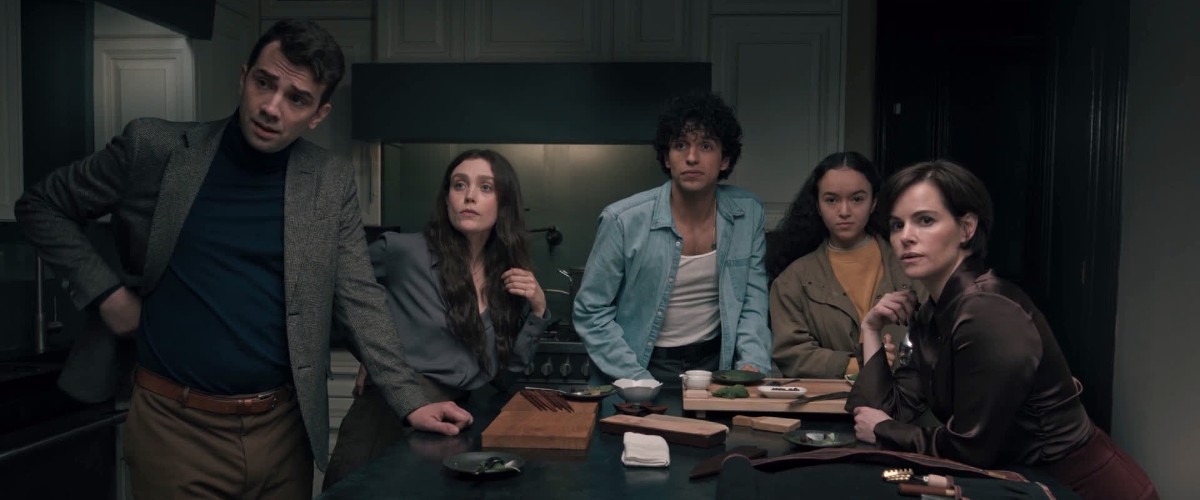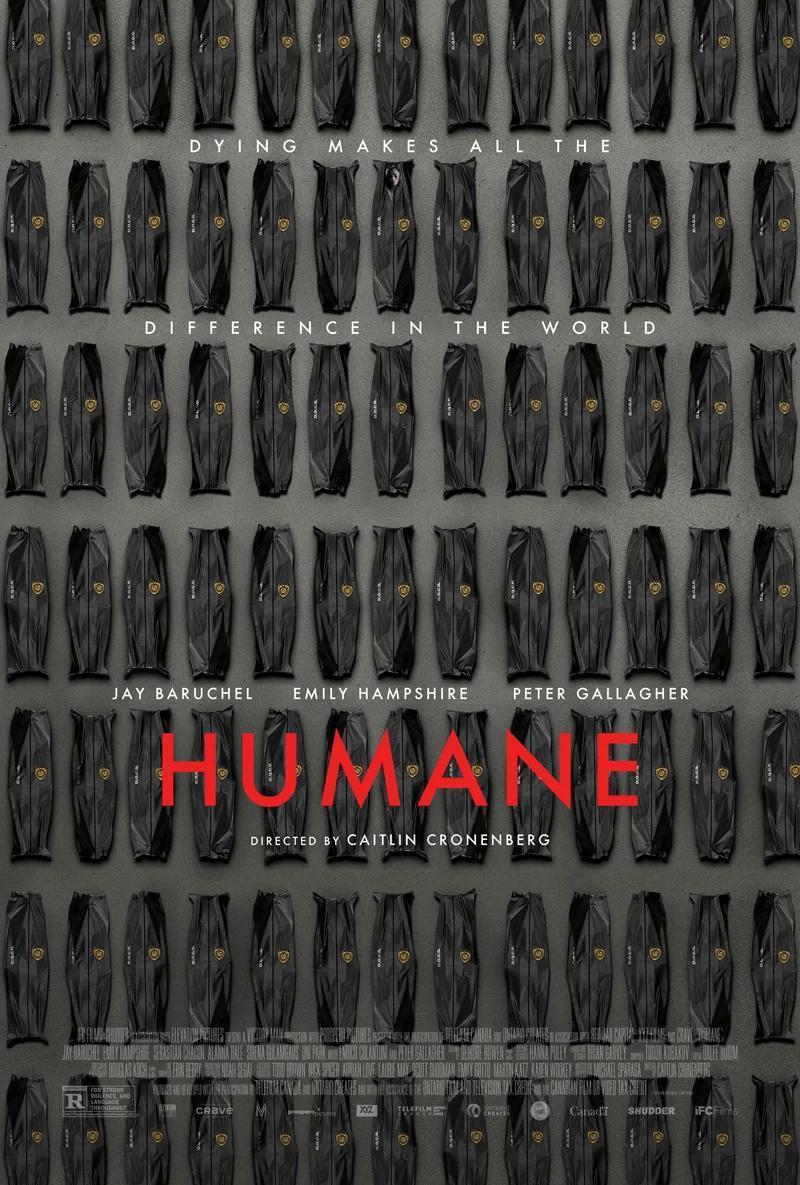The Cronenberg cinematic family tree adds another branch this week with the directorial debut of Caitlin Cronenberg’s “Humane,” starring Jay Baruchel, Peter Gallagher, and Emily Hampshire. Anyone coming to this film for more of the body horror imagery in the work of David Cronenberg or Brandon Cronenberg should mostly temper expectations of surreal terror. But there’s definitely thematic connective tissue: this is another genre flick about losing control of your own being.
Michael Sparaga’s script starts with a clever premise — imagining a world in which climate change and overpopulation have led to forced euthanasia. But it then has almost no idea what to do with it, as Cronenberg’s film dissipates into a series of unbelievable decisions made by people we don’t care about, shot in a surprisingly flat style. The scariest thing about “Humane” is how genuinely believable its nightmare vision ends up being. However, the film’s micro approach to a macro crisis never connects because we’re never given a reason to care about these specific people.
All of “Humane” takes place on a single day at the fancy home of former news anchor Charles York (Peter Gallagher), who brings his family together as the world reels from an international order that the entire population must be diminished by 20%. Who would be forced into euthanasia? Would a “Purge”-like situation of lawlessness emerge? The most famous York son, Jared (Jay Baruchel), is the kind of guy who seems to be profiting off the misery of the world, a Tucker Carlson-esque talking head who believes national euthanasia is for the greater good.
The family gathering shifts gears when Charles tells the children that he’s decided that he and his latest wife, Dawn (Uni Park), have volunteered to shuffle off this mortal coil, and a smarmy technician named Bob (Enrico Colantoni) shows up to get the job done. While the emotional upheaval of that announcement is still thick in the air, something goes wrong—of course—leading to the kids having to pick another person to fulfill the order. You can imagine how that goes. Resentments, regrets, and general sibling anger fill the bulk of “Humane,” which sometimes plays like an episode of “Succession” in which the Roys must decide which one of Logan’s kids to execute.
That actually might make it sound more fun than this film ended up. Most of what’s clever about “Humane” exists on its fringe—including perhaps that a Cronenberg has made a film that’s, at least in part, about nepotism—primarily in how it throws its characters from their ivory tower and then watches them fight in the mud over who gets to climb back up. The social commentary talking points embedded in “Humane” are undoubtedly intriguing, but too many of them feel superficial, flirting with ideas about privilege without having much to say about them. Jared is the kind of guy who goes on TV to be a shill for his government, going as far as to suggest that he would sacrifice his own child if asked to do so. What would happen to someone like that when they have to actually act on their words?
Stealing the film, Baruchel gives another unique performance (he always does) as a former anthropologist who has studied human nature enough to know how to stay on top of the food chain. Colantoni also gets some fun beats as a guy who has seen it all since the euthanasia order started, someone who might enjoy his job a little too much.
Sadly, everything else feels a little thin. Emily Hampshire, Alanna Bale, and Sebastian Chacon play the other three York children, and none of them register as three-dimensional, a fatal flaw in a film that relies on bounding characters off each other in a single setting. Hampshire’s an obvious sociopath who probably thinks the 20% number should be doubled, while Bale barely registers at all. Chacon, being the adopted York child, threatens to add an exciting layer to the debate that’s discarded for a twist.
This might be more forgivable if “Humane” had stronger visual language. Cronenberg eventually gets a little fun with close-ups of the bloody stuff, but the bulk of this film is surprisingly flat and poorly lit. It alternates from too dim to bizarre overhead bright lights that look like an interrogation room.
There are little bits of entertainment and insight buried throughout “Humane,” some in news footage about how the rest of the world is handling the crisis. The film is clearly a COVID allegory, with a patriarch who has profited from misinformation and fearmongering kicking off a single-setting thriller. However, all of this is concept more than execution. In the end, “Humane” is an interesting story told in a deeply uninteresting manner.




















